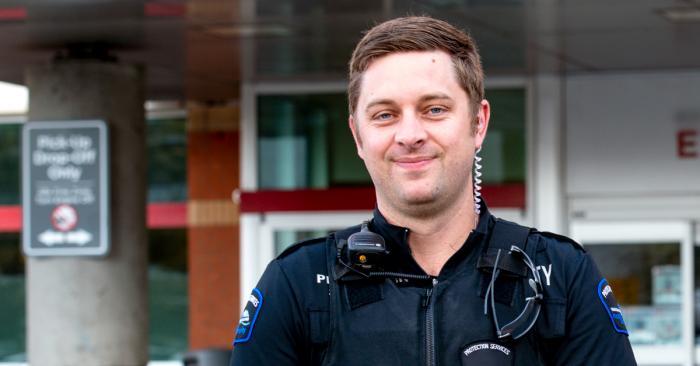
“We focus on verbal de-escalation with people. A lot of times, patients get offended when you start talking hospital jibber-jabber with them and they don’t understand it. It can make them more upset. When I’m interacting with people, I try to keep it very simple and use non-medical terminology. I want to make sure they understand what’s going on.
I try to be non-aggressive, but authoritative. Control and calmness can help resolve the situation. I don’t scream back, I don’t yell, and I don’t get angry.
Many of us are volunteer firefighters who have fought wildfires; some of us are police reserves, or have been paramedics. We have other fields that we lean on for our training. We bring these underlying skills we’ve learned over the years to this job at the hospital.
The best thing I can tell other health care workers is that it’s okay to fail. It’s okay to call on other people and other resources if something isn’t working and you need help. When you can accept that you might not be the right person for a situation, that’s a big learning. Sometimes, my partner will come in and be able to calm someone down.
Management was trying to change our schedule so that we worked more days in a row, so we unionized. We need the days off to deal with our mental health and to re-charge. Within 12 hours, we had enough signatures to go to a vote. And then, 36 hours after that, we had all cards signed and returned. It was a really fast organizing drive.
We are much more than security at the hospital. We are the Code White response team, we deal with patient aggression or violent interactions. A big part of our job is also fire safety, first aid for the site, as well as patient transfers.
We may look rough, but we’re actually really nice people. We stand out because we’re not in scrubs. But people just need to learn to engage with us because we are part of the team.”
- Kiel, Protection Service Officer, part of the health care team